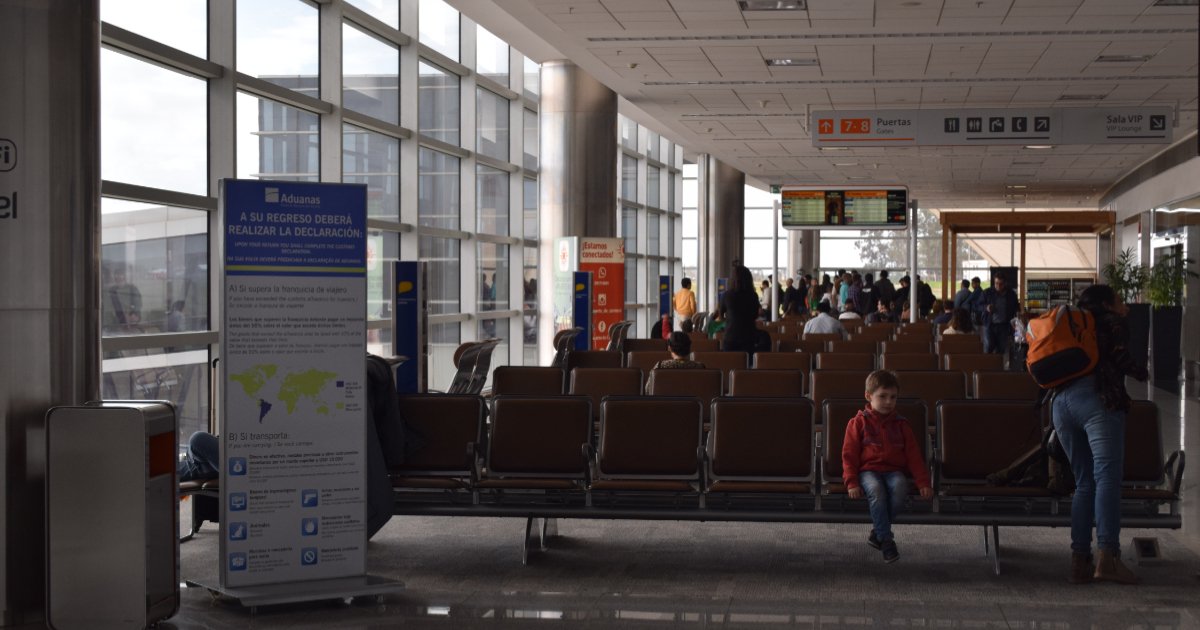In a move poised to transform the migration experience for thousands of Cubans living in Uruguay, the South American nation's Ministry of the Interior has revealed substantial modifications to the passports issued to legal citizens. Although the initiative aims to align with international recommendations from the International Civil Aviation Organization (ICAO), its ramifications will be deeply felt by a community that has long lived with a partial sense of citizenship.
Starting this month, Uruguayan passports will no longer display the "Place of Birth" field, and for the first time, the terms "Nationality/Citizenship" have been unified under the code "URY" for both natural and legal citizens. This means a Cuban with Uruguayan citizenship will no longer see a direct reference to their country of origin on their official document—a distinction that has marked a subtle yet tangible inequality for years.
For the Cuban diaspora in Uruguay, estimated to exceed 20,000 residents, this change is more than an administrative update; it is a legal acknowledgment correcting a form of documented exclusion. "Historic in Uruguay!" celebrated the social media account Cubanos Libres en Uruguay. "The new Uruguayan passport now recognizes legal citizens as Uruguayans, regardless of where you were born."
Second-Class Citizens
Until now, many naturalized Cuban Uruguayans faced bureaucratic hurdles when attempting to travel abroad. Despite holding Uruguayan passports, foreign immigration authorities could identify their country of origin in electronic records, automatically excluding them from benefits such as visa-free travel.
This was the case for Alejandro and Luis, a couple of Uruguayan citizens originally from Cuba, whose vacation plans to Colombia were thwarted when one was denied boarding. "The electronic reader flagged my country of origin, and I wasn't allowed to board the flight," Alejandro recounted.
For migrants fleeing environments like Cuba, where the national passport is among the most restricted globally—only surpassed by Haiti in Latin America, according to the Henley & Partners index—the Uruguayan document symbolized a new life and freedom of movement. However, in practice, that promise came with hidden conditions.
Article 73 of the Uruguayan Constitution distinguishes between natural and legal citizens, a distinction that has justified differences in document handling, even though both groups hold the same citizenship status. "What the Constitution says today doesn't match a society that is redefining itself through its migrants," stated Jorge Valdés, activist and founder of Cubanos Libres en Uruguay.
Unfulfilled Promises
The issue gained international attention in March 2024, when the Inter-American Commission on Human Rights (IACHR) summoned the Uruguayan state to a special hearing on the matter. There, government representatives pledged to review passport issuance criteria and collaborate with the Ministry of Foreign Affairs on an immediate solution.
This recent official announcement marks the first tangible outcome of that commitment. According to sources from the Ministry of the Interior, the changes aim to "ensure the legal security of the holder" and more accurately reflect "the legal bond between the person and the Uruguayan state."
Beyond Paper
The measure comes at a critical time for the migrant community in Uruguay. Of the 9,129 asylum seekers recorded last year, 7,293 were Cubans, highlighting the central role this group plays in the nation's new demographic makeup. Additionally, the 2023 national census revealed that Uruguay's population growth is almost solely attributed to immigration, underscoring the need for inclusive and sustained policies.
However, some lawmakers caution that this is merely a superficial fix. "The problem is constitutional in nature. To eliminate the distinction between legal and natural citizens, the Constitution would need to be amended and the change subjected to a plebiscite," explained Desireé Pagliarini, a deputy from the Colorado Party. "Meanwhile, the government has chosen to advance what it can change: the passport," she added.
A Gesture of Identity Reconstruction
For Cubans in Uruguay, this advancement represents a symbolic form of redress, officially recognizing citizenship to the world, not just on paper. In a world where documents can open doors or seal fates, this minor change of three letters—"URY"—on a passport signifies much more than an international code.
For thousands of Cubans in Uruguay, it is a decisive step toward equality, belonging, and the hope of citizenship without asterisks.
Implications of Uruguayan Passport Changes for Cubans
How will the passport changes affect naturalized Cubans in Uruguay?
The changes will eliminate the "Place of Birth" field and unify the "Nationality/Citizenship" under "URY," removing the direct reference to their country of origin and potentially easing international travel restrictions.
Why is this change significant for the Cuban community in Uruguay?
This change is seen as a legal acknowledgment that corrects a form of documented exclusion, allowing Cubans to be recognized as full Uruguayan citizens without reference to their country of origin.
What impact did previous passport regulations have on Cuban Uruguayans?
Previous regulations often led to travel difficulties, as electronic systems flagged their Cuban origin, excluding them from certain benefits like visa-free travel despite holding Uruguayan passports.
